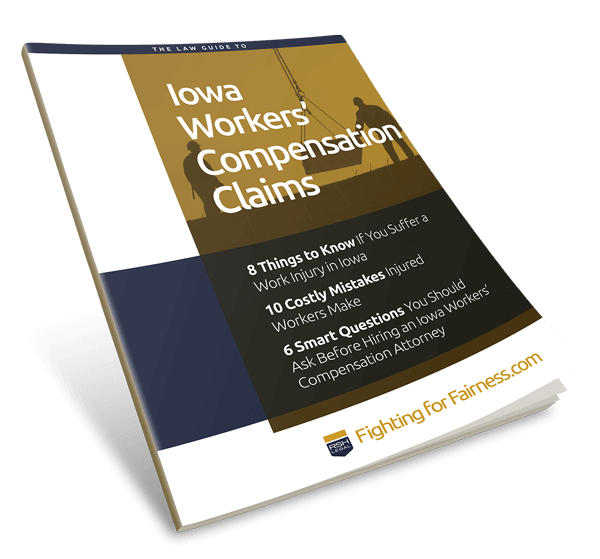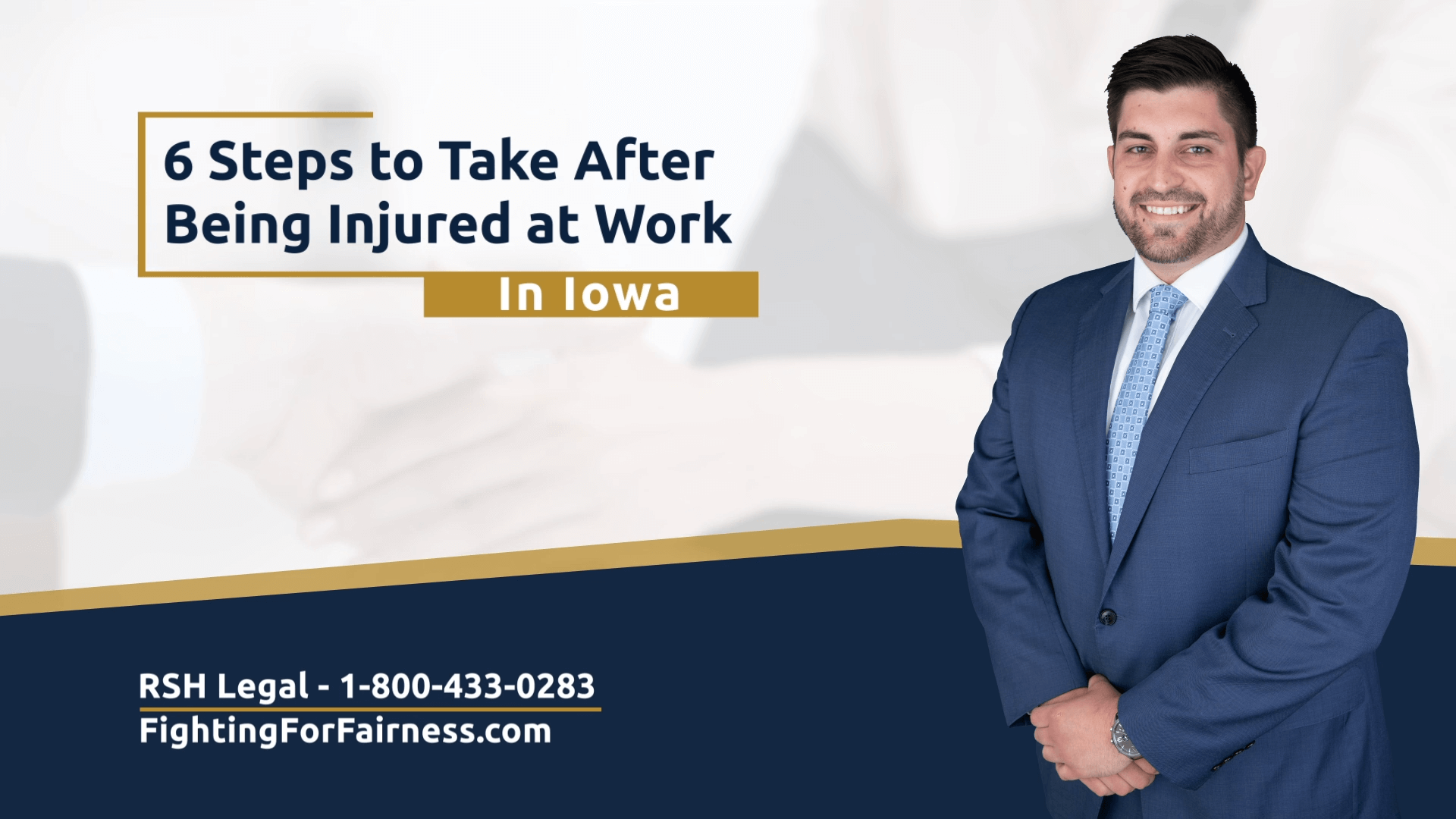Attention! Iowa’s Workers’ Compensation laws changed July 1, 2017. This article’s information may be out of date. Visit our Workers’ Compensation Page for more information.
When a person is injured on the job, they will typically receive no shortage of advice. Friends, families and co-workers will often offer suggestions to an injured worker about what to do and what not to do. Unfortunately, one of the most common, but misguided, pieces of advice is that an injured worker doesn’t need to talk to an attorney before settling an Iowa workers’ compensation claim.
Here are six common situations when an injured worker should consult with a lawyer:
Talk to an attorney if recommended medical care is being denied by your employer
If a doctor is recommending treatment for a work-related injury but the employer is refusing to pay for it, the injured worker can file a petition for alternative medical care with the Iowa Workers’ Compensation Commissioner.
Talk to an attorney if you have not been reimbursed for travel expenses to authorized medical treatment for your work-related injury
Injured workers may be reimbursed for mileage if they drive themselves to authorized medical appointments. Mileage for a private car is reimbursed at the level allowed by the IRS for business travel.
Talk to an attorney to make sure you are getting weekly benefits at the amount to which you are entitled
You should not assume that your weekly benefit rate has been calculated correctly. Correctly calculating an injured worker’s weekly benefit rate can be complicated. It requires a careful review of a worker’s payroll records and non-wage items such as regular bonuses and room and board. Employers rarely take the time to correctly calculate weekly benefit rates.
Talk to an attorney if you are not receiving your weekly benefit checks on time
Weekly payments of disability benefits are to begin on the eleventh day of disability. If benefits are not paid when due, an injured worker may be entitled to interest on late payments. If weekly benefits are unreasonably delayed or denied, an injured worker may also be entitled to penalty benefits. Particular documentation steps need to be taken if you want to hold an employer accountable for late weekly benefit payments.
Talk to an attorney if you have received a permanent impairment rating from an employer-authorized doctor
An employee has the right to a one-time, second opinion on the rating from a doctor of the injured worker’s choice – at the employer’s expense. Before exercising your right to your free second opinion, consult with an experienced workers’ compensation lawyer. Your choice of an examining doctor could make or break your case.
Talk to an attorney if you are offered a settlement offer based only upon your permanent impairment rating
Employers will often make a settlement offer to an injured worker after the worker has reached maximum medical improvement after a work injury. A permanent impairment rating is only one factor in the assessment of permanent disability. Often, a correct valuation of a permanent disability claim goes far beyond an impairment rating number. Talk to an attorney who will do an independent assessment of your entitlement to permanent disability benefits before accepting a settlement offer. That sad truth is that many injured Iowans settle for much less than they deserve.
To find out the information you need to find the right Iowa attorney for your case, use the form on this page to download the entire Law Guide to Iowa Workers’ Compensation Claims.




